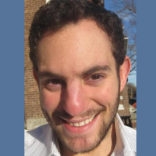These days in Israel, it seems that you can’t start a sentence with the word “rabbinate” and not end with “monopoly.” Nowhere is this more clear than in Jerusalem. I love the city, and have warm feelings when I ride the No. 1 bus through Mea Shearim, and see the small, segregated corners of seats. When I think of Jerusalem, I think of peyot and black hats, not of the country’s sizeable Sephardic population, which shares a large culture with Arabs.
In their hegemony, religious leaders don’t only control marriages, deaths, conversions and Jewish identity, but they also dictate the national story. This is where “Ashkenormative” creativity comes in. The best way to establish supremacy is to write out history. A cultural genocide is often a more effective way of creating a nation-state than a physical genocide. It’s easier, less costly and there’s no pesky murderous bloodshed that you have to keep denying years later. (Looking at you, Armenia.)
This might include the whitewashing of Jerusalem’s past, when Sephardic and Mizrahi Jews, Arabs and Turks lived side by side for hundreds of years, in times of tumultuousness and peace. There were flare-ups, and it was an uneasy peace, but to look at the city as simply Jewish one misses the uniqueness of its long history.
I love the Kotel, the variety of kosher restaurants, the richness that overflows from the small alleyways. There’s nothing like getting lost in the Old City, stepping in puddles, making wrong turns and knowing exactly where you’re going if not for that darn wall or building blocking your way.
The government also seems to be leaking democracy. As a new election — the second one in five months — nears, anxiety is rising in the city. King Bibi might reign supreme. Education Minister Rafi Peretz said last week that he supports conversion therapy for LGBTQ people. Transportation Minister Bezalel Smotrich came to Peretz’s defense, calling the furor raised by his comments a “lynching.” For Israeli citizens and east Jerusalemites, the Sept. 22 elections can’t come soon enough.
When a friend invited me to hear a Mizrahi D.J. perform, I jumped at the opportunity. A few Arabic rappers opened the show. Outside the club, the streets were spilling over with Arabs and Israelis of various backgrounds. People sat on tables and on the curb, smoking and drinking in the seemingly closed-off street that moonlighted as a semi-club scene. During the day, it’s an industrial area, just a 15-minute walk from the Western Wall. While we waited, we sipped IPA beer made by Taybeh, a brewery based in the West Bank.
The show finally got going two hours late (Israeli Standard Time). The round shape of the room reminded me of Pete’s Candy Store, a popular Williamsburg venue. It was smoky, as people enjoyed cigarettes and other things — this was the Middle East, after all.
Strobe lights flashed and the D.J. stand was surrounded by a chuppah made of keffiyahs. The U.S. ambassador to Israel, David Friedman, might not have been happy. This was not the clean, Orthodox City of Gold that he seems to represent. Instead, it was a multicultural hangar of sin.
The background music died down and RAm Mizrahi Spinoza, a local D.J. and activist who uses a combination of Mizrahi and Arabic music in his original scores, took the stage. Hasan MC, a local rapper with a well-trimmed beard, also belted out songs in Arabic. He riled up the crowd with his fast delivery, and the frenzy of the diverse crowd pulsated in the small room.
Spinoza, who spun songs for hours, was (not surprisingly, given his stage name) unabashedly Mizrahi. And the crowd seemed unashamed to be sharing the same small space with such a mix of people. This wasn’t a casual usurping of the Chief Rabbinate’s claim to Jerusalem. We weren’t altering policy at the Kotel. But we were in the same room, enjoying the same sounds, undermining the seeming religious hold on Jerusalem in a beautiful, magical way.
This wasn’t peace. It was just dancing, but also something more. It was real, beyond political rhetoric and empty electoral promises.
At around 2 a.m., I was getting tired. A friend and I said goodbye to the group and hustled over to the Kotel for a late-evening prayer. As I walked through the Jaffa Gate to the Jewish holy site, Mizrahi and Arabic music echoing in my ears, I realized that we can hold each other’s musical stories in our heads and ears while also appreciating our own.
Eli Reiter’s column appears the fourth week of the month.
The New York Jewish Week brings you the stories behind the headlines, keeping you connected to Jewish life in New York. Help sustain the reporting you trust by donating today.





